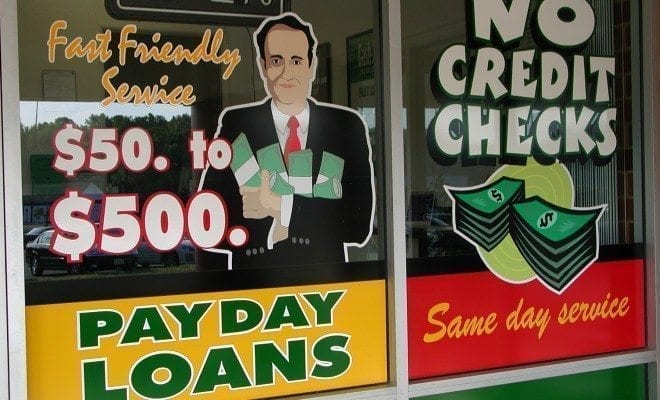On Friday, New Mexico lawmakers began drawing up a plan to rein in payday loan lenders.
Payday loans have faced much criticism across the country. Lenders usually profit big by charging exorbitant interest rates. Borrowers are usually victimized by short payment windows coupled with unrealistically large installments. The proposed legislation seeks to cap interest rates on installment loans at 175%.
Consumer advocates still worry that the measures aren’t broad enough to protect vulnerable borrowers from predatory lenders. Lynne Canning of the Sante Fe Neighborhood Law Center had been advocate for a proposed interest cap of 36%.

Pilot Online quoted her as saying, “Out in the real world when you even suggest a 36 percent cap to most people they gasp in horror how high that is and you have to explain: ‘No, that’s really the good rate cap.’ We still need to continue to move that cap down to place that will really protect consumers and that is not based on a business model that really hurts our families.”
The dangers of payday loans have been well documented. Lenders usually tack on fees which increase with every missed installment. Sometimes interest rates can vary between 15 to 30 percent on a period of only a few weeks. The Balance writes that such numbers, when spread out over the course of a year, are equivalent to an annual percentage rate of almost 800 percent.
Businesses offering payday loan services usually locate themselves in mid- to lower-income neighborhoods. Borrowers are usually desperate to begin with; even if they manage to cover the principle and fees from their first loan with a check from work, they might find might have to take another loan to cover their expenses for the next week. The cycle can continue indefinitely, culminating in a near-constant state of what could be described as debt bondage.
Many states outside of New Mexico have already implemented laws which limit the rates payday loan lenders can levy. The Michigan Attorney General went so far as to issue a “Consumer Alert” online detailing the often “unfair, deceptive, or misleading business practices” common to the industry. The example of a $100 loan with a $15 service fee is given – if a borrower can’t pay back the servicer back on time, then they can be charged approximately $1 per day. Over the course of a year, the interest rate equivalent can reach into triple digits.
On top of notifications and consumer protection laws, fourteen states, in addition to Washington, D.C., have outright banned the payday-type loans. Some jurisdictions try to lessen the potential for abuse by restricting how many back-to-back loans can be issued by a business to an individual customer.
The Salt Lake City Tribune made a fantastic and fact-checked comparison highlighting the exorbitant rates charged by Utah payday lenders. Their research showed that the average in-state payday loan could be calculated as bearing an interest rate of around 459%. Some charged up to 1408%.
According to the Tribune, the average is roughly double the “vig” – or interest – New York Mafia loansharks charged their clients in the 1960s.
Sources
New Mexico House committee advances payday loan legislation
Payday Loan – Know Your Rights and Decide If One Is Right for You
Payday Loans: Beware of These Dangerous Loans
Utah payday lenders’ average interest rate roughly double that of 1960s Mafia loans


Join the conversation!